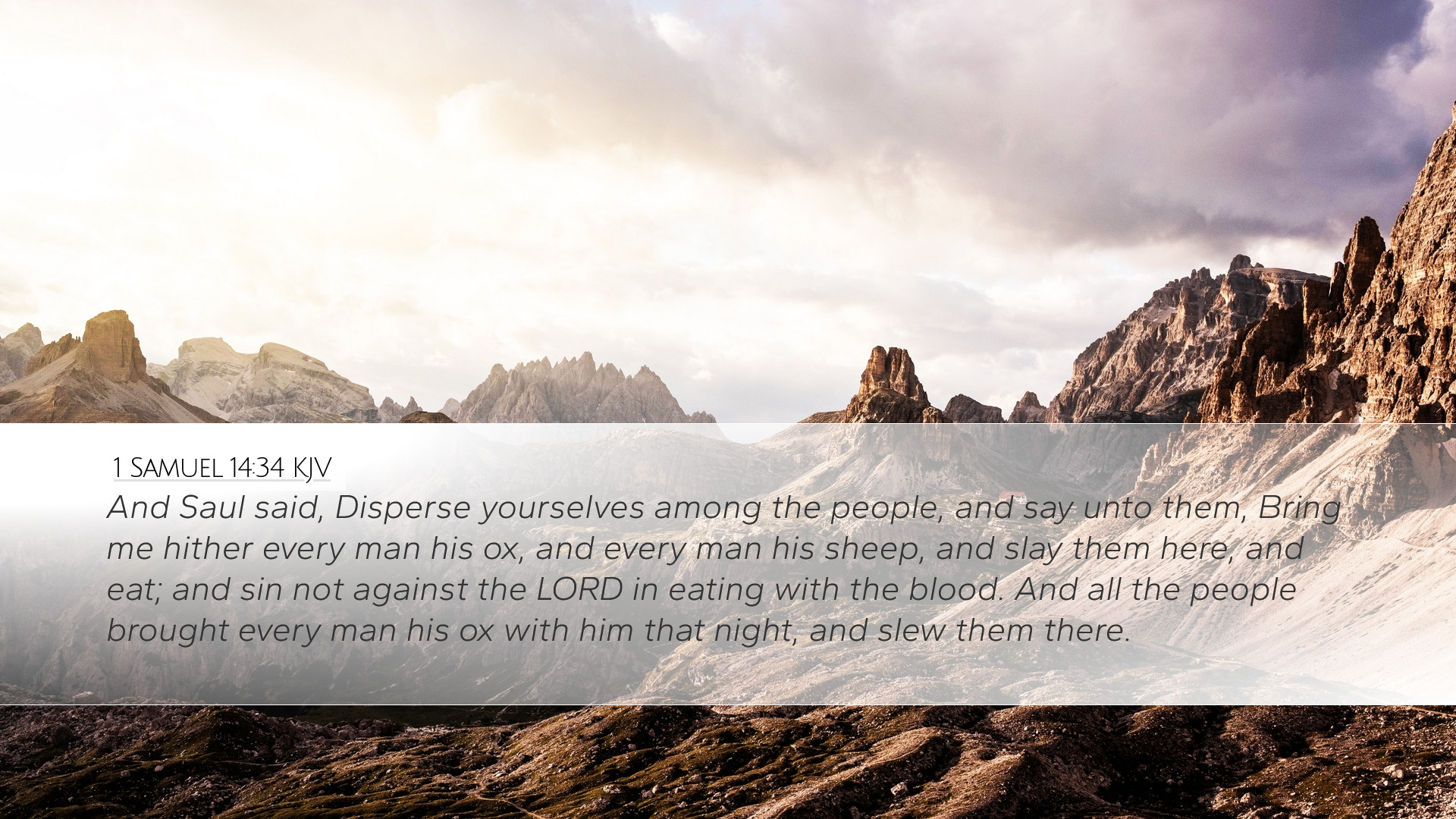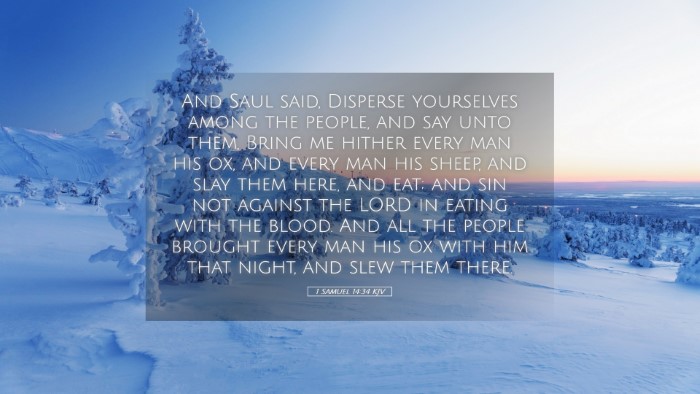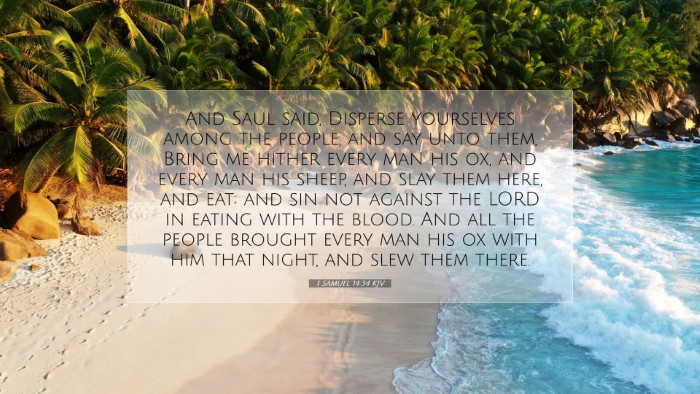Commentary on 1 Samuel 14:34
Bible Verse: "And Saul said, 'Disperse yourselves among the people, and say to them, "Bring me here every man his ox and every man his sheep, and slay them here and eat; and do not sin against the Lord by eating with the blood."' And all the people brought each one his ox with him that night, and they slew them there." (1 Samuel 14:34, NKJV)
Contextual Overview
This verse occurs during the reign of Saul, Israel’s first king, amidst a significant military engagement against the Philistines. Prior to this moment, Saul had made an impulsive oath demanding that no man eat until evening, a decree that led to exhaustion and unrest among his troops. The command to abstain from food not only strained morale but also endangered their health and ability to fight effectively.
Commentary Insights
Commentaries from renowned scholars provide a rich understanding of this verse and its implications.
Matthew Henry's Commentary
Matthew Henry highlights the gravity of Saul’s leadership decisions, portraying the king's earlier oath as a rash act born out of desperation rather than reason. He emphasizes that Saul’s command inadvertently led his men to sin against God by consuming meat with blood still in it, which was strictly prohibited under the Mosaic Law. Henry argues that Saul's desire to regain control and appease his men resulted in him providing a way to rectify their earlier mistake. He notes that this incident underscores a key principle in leadership: commands must always align with divine law and the wellbeing of those being led.
Albert Barnes' Notes on the Bible
Albert Barnes elaborates on the cultural context of slaughtering animals and the significance of blood in sacrificial practices. He asserts that eating meat with blood was a severe offense against God, indicative of a lack of reverence for life. Barnes posits that Saul’s call for the people to slaughter their animals was an immediate corrective action to prevent further transgression and restore their relationship with God. He argues that this act reveals the tension between human leadership and divine expectation, illustrating the necessity of aligning human behavior with scriptural mandates.
Adam Clarke's Commentary
Adam Clarke provides a linguistic and cultural study on the phrase "do not sin against the Lord by eating with the blood." He reflects on the Hebrew understanding of blood as representing life, thus consuming it improperly would signify a disregard for God’s divine order. Clarke notes that Saul’s orders were influenced by a desire to act righteously in the sight of God and were a corrective measure after a period of poor judgment. He also points out that Saul's leadership was marked by fluctuating righteousness and folly, a poignant reminder for contemporary leaders to be consistent in their moral and spiritual integrity.
Theological Reflections
The passage raises vital theological discussions relevant for pastors, students, and scholars alike:
- Leadership and Responsibility: The actions of Saul serve as a cautionary example about how leadership decisions can lead to consequences for those under one's authority. Leaders must seek wisdom in their decisions and ensure they align with God’s laws.
- Human Fallibility: Saul’s character is marred by impulsiveness, revealing the tension between human desires and divine expectations. This serves as an illustration of the ongoing struggle humans face in adhering to God's statutes.
- The Consequences of Sin: The consumption of blood represents more than a dietary law; it symbolizes a deeper spiritual disobedience. This emphasizes the importance of understanding and respecting God’s commandments as inherently tied to our relationship with Him.
- Restoration and Correction: Saul’s action to correct the wrong was an act of repentance. This teaches an important lesson in the need for leaders to recognize their faults and take steps to restore their standing with God and their followers.
Applications for Today
The insights garnered from 1 Samuel 14:34 can be directly applied to modern-day contexts of leadership and moral integrity:
- Wise Leadership: Leaders in any faith community must carefully consider the implications of their commands and ensure they nurture rather than harm those they lead.
- Upholding Standards: In times of pressure, maintaining adherence to God’s principles is essential, even when faced with popular opinion or situational challenges.
- Accountability: It is vital for leaders to cultivate an environment where moral failings can be acknowledged and corrected without fear, thereby fostering genuine growth and community health.
Conclusion
1 Samuel 14:34 serves as a multifaceted text that inspires deep reflection on the dynamics of leadership, personal integrity, and the need to obey God’s commands faithfully. Through the insights offered by esteemed commentators, we learn the importance of discerning leadership that truly seeks to honor God while navigating the complexities of human decisions.


